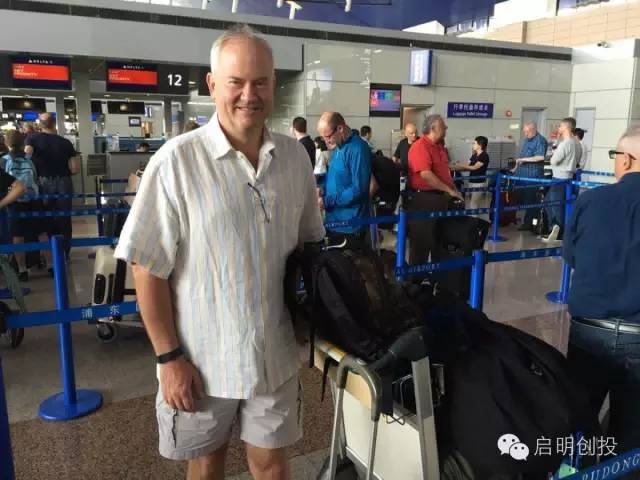
Qiming Venture Partners co-founder Gary Rieschel moved back to the U.S. from
Shanghai on July 2 after a successful decade in venture capital investing in China.
Many of the savviest China hands give their best interviews only when they are about to leave the country, and venture capitalist Gary Rieschel gave me a great one when on the morning of the very day he moved back to the U.S. from Shanghai in July.
Rieschel arrived in China in 2005 on the back of a successful investment career with Softbank and with enough money to retire. Instead, he took the lead in building up Qiming Ventures, a Shanghai-headquartered firm that today has $2.8 billion under management. Its most successful investments include smartphone supplier Xiaomi and Tigermed, a drug trial company. Soft-spoken Oregon native Rieschel moved to Seattle last month to start a Qiming U.S. healthcare fund with money raised from its portfolio companies in China that are looking for new products abroad.
In our conversation, Rieschel was critical of China’s lack of reform of its state-owned companies, sized up the root causes of the country’s big increase in overseas investment, talked about the Communist Party, and expressed disappointment over foot-dragging among stock market regulators when it comes to introducing market-based IPO rules. He also talked about the outlook for smartphone rivals Xiaomi and Huawei. Excerpts follow.
Forbes: Why leave China now?
Rieschel: Personally, Qiming has evolved to point now where we have 52 people, and the activity in the firm is more and more local. The investor base is very solid. The team and the dynamics of partnership have been good. My main contributions to the firm are pretty complete. And I agree with a strong philosophy: if I’m not going to be committed to be in the place for 10 years when the average holding period for us is eight years in China, it doesn’t make sense to me. I also don’t think people living outside of China should be doing deals in China. It is too context sensitive. That’s part of it: the maturity of where Qiming is.
Another piece is that China can never be home. I have my 60thbirthday this year, and didn’t expect to spend the last 12 years outside the United States. That’s how it worked out, which has been great, but now it’s time to go home. A final piece is that I’m not retiring. I want Qiming to be the first China-based fund, China-created or originated fund to go back and actually launch a fund in the United States. So sometime this year, that’s what we are going to do: go out and raise a pool of capital specifically to do healthcare investing in the United States. I won’t leave the venture industry; I’m going to shift my base of operations from China to the United States.
Forbes: When you look back, what are the one or two things that you did at Qiming that were most satisfying?
Rieschel: The conventional wisdom when we formed Qiming was the idea of equal partnership in China couldn’t work; that Chinese always needed to know there is one person in charge. I think Duane (Kuang), myself, JP (Gan), Nsia (Leung) and now William (Hu) who is joining the manager partner team, have proven that that’s not true. If you structure a culture and you’re careful the attitudes of people you bring in, you can create a team with mutual trust, intellectual honesty and very, very few political games.